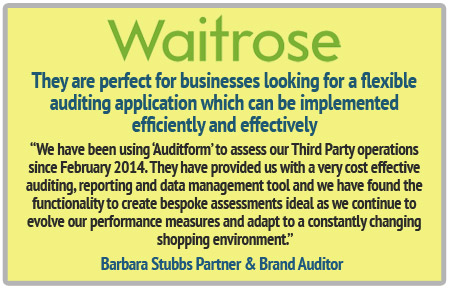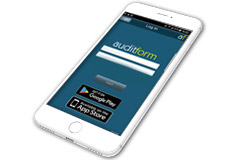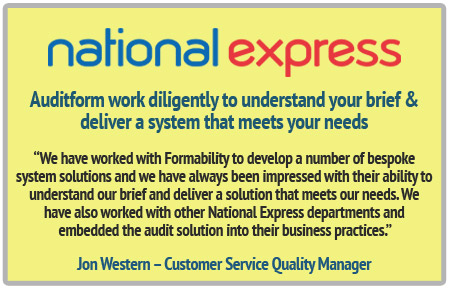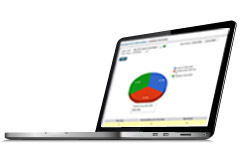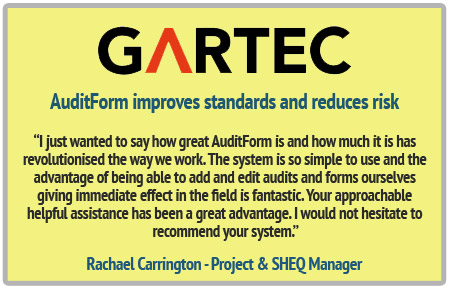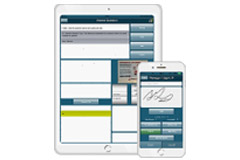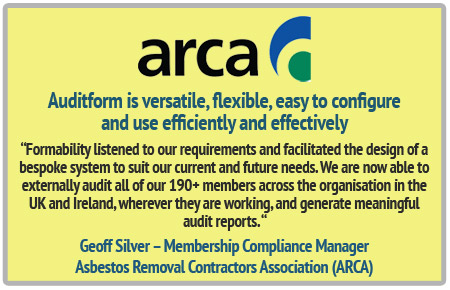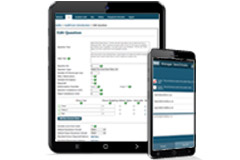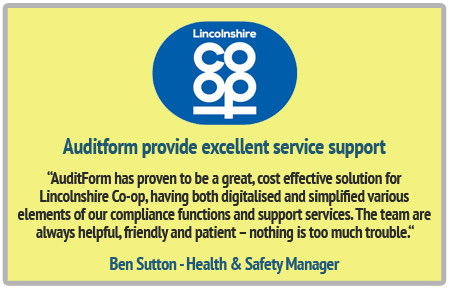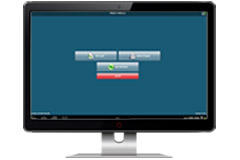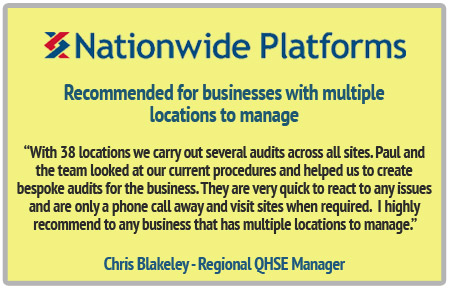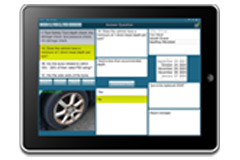Audit Management Software, Efficient Solutions at Your Fingertips
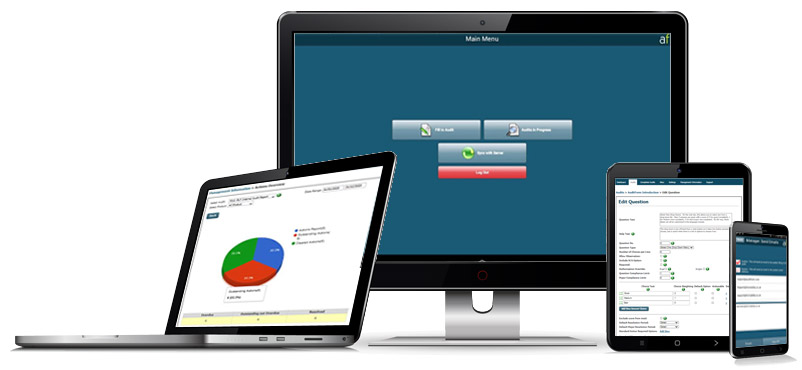 .
.
Innovating Audit Processes with Management Software
In the sphere of audit management, precision is juxtaposed with speed, necessitating an innovative approach to traditional methodologies. Audit management software solutions enhance the auditor’s toolkit, enabling streamlined processes such as audit scheduling and planning, document management, and workpaper management. These systems coalesce to form a robust architecture where efficacy and compliance intersect, driven by technological advancements that propel auditors toward excellence.
Integrating audit management systems into the daily workflow is akin to fitting a master key into the intricate lock of auditing complexities. With features like findings and recommendations tracking, control testing, and audit report generation, these tools provide a structured canvas for auditors to paint their analyses. This sophisticated orchestration of data, augmented by the power of stakeholder collaboration and a regulatory compliance database, ensures that no stone is left unturned, and every piece of evidence is meticulously accounted for within the auditing tableau.
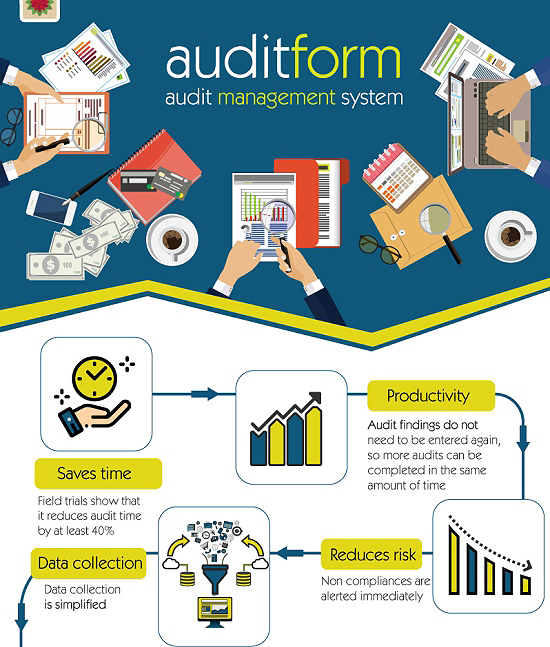
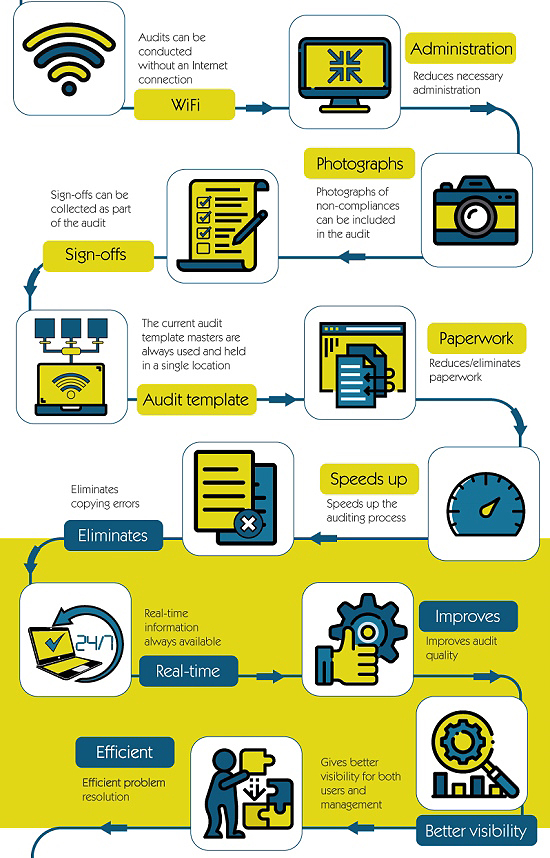
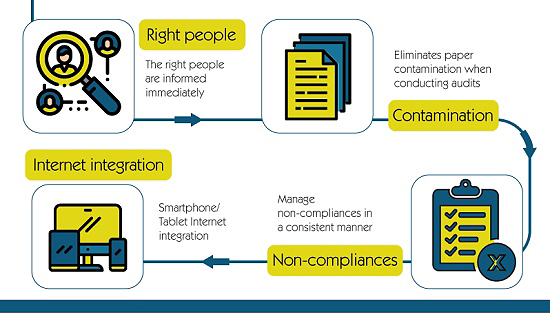
Upgrading Efficiency with Audit Scheduling and Planning
Efficient audit management systems define the success of an audit, with scheduling and planning at the core. These components ensure a streamlined, methodical approach that dovetails with strategic objectives.
An effective auditing management software facilitates a proactive audit process, eschewing the reactive tendencies of traditional methods. The result is a cohesive audit loop, ensuring nothing is overlooked and every action aligns with the overarching audit strategy.
Auditing reduces the time spent on manual processes by up to 50%.
When employing audit management software solutions, auditors unlock the potential of precise planning tools and customizable schedules that fit their unique needs. Implementing such advanced features enhances accuracy, reduces overlap, and elevates overall audit quality. Indeed, a forward-looking audit management program is indispensable in today’s complex compliance landscape.
Simplifying Document and Workpaper Management
Effective document and workpaper management is the linchpin of a robust audit management program.
- Centralized Storage: Implement a single repository for all audit documents and workpapers.
- Access Control: Define user permissions to ensure confidentiality and integrity of information.
- Version Control: Maintain a clear history of document revisions for audit trail purposes.
- Searchability: Utilize advanced search functions to quickly locate necessary documents.
- Collaboration: Facilitate simultaneous workpaper updating and reviewing by team members.
- Integration: Leverage seamless integration with other systems for data consistency.
- Audit Trails: Record detailed access and change logs to comply with regulatory standards.
- Cloud-Based Solutions: Utilize cloud storage for flexibility and offsite data security. Automated audit system software enhances the accuracy and accessibility of critical documents.
Efficient audit software systems streamline the collaboration and revision process, guaranteeing up-to-date compliance.
Advanced Tools for Risk and Compliance Monitoring
Leveraging the latest in audit management software systems enables a comprehensive approach to risk assessment and regulatory tracking. With functionalities such as risk evaluation tools, regulatory compliance databases, and compliance monitoring, auditors can scrutinise processes with fine precision, ensuring no stone is left unturned. Indeed, the integration of performance metrics and analysis within these platforms facilitates data-driven decisions, anchoring an organisation’s strategy in solid, risk-aware grounds.
Effective audit engagement management software is instrumental in identifying potential areas of compliance vulnerability before they escalate into significant issues. It empowers professionals with control testing capabilities and findings and recommendations tracking, streamlining the process from detection to resolution. Such vigilance is paramount in maintaining the fidelity of an organisation’s compliance landscape.
Integrated Risk Evaluation Tools
Effective risk management hinges on the precision and integration of assessment tools within audit management platforms.
- Comprehensive Risk Scoring: Establishes a foundational metric for prioritising audit activities based on potential impact.
- Automated Risk Indicators: Ensures real-time visibility of risk levels with minimal manual intervention.
- Control Effectiveness Measurement: Facilitates quantifiable assessment of internal controls and their effectiveness.
- Scenario Analysis: Enables auditors to evaluate potential outcomes and the impact of various risk scenarios.
- Risk Heat Maps: Assists in visualising and communicating risk distributions and hotspots across the organisation. Central to this is the utilisation of dynamic dashboards that collate and present risk data coherently.
Incorporating these tools into the audit process enhances precision and efficiency, enabling auditors to focus their efforts where it matters most.
Up-to-date Regulatory Compliance Database
A foundational aspect of robust audit management systems is the maintenance of an up-to-date regulatory compliance database. This is a critical resource that ensures auditors are well-informed and can adhere to the latest statutory requirements.
Reliable auditing management software is equipped with a comprehensive regulatory compliance database that is routinely updated to reflect changes in laws and regulations. Such a database acts as the backbone of the auditing process, furnishing auditors with the relevant information needed to assess compliance accurately. It ensures adherence to the most current standards, alleviating concerns related to outdated practices and potential non-compliance.
For audit professionals, having access to current regulatory data translates into the ability to conduct more effective control testing and compliance monitoring. This crucial component underpins the entire audit lifecycle, from audit scheduling and planning through to findings and recommendations tracking.
Moreover, the best audit management software will offer real-time updates to its regulatory compliance database, thereby empowering audit teams to stay ahead of the curve. With audit management software free trials, organisations can experience first hand how these reliable databases integrate with the audit process. This level of accessibility and utility is paramount for upholding the integrity of the audit, facilitating stakeholder collaboration, and ensuring that all compliance mandates are seamlessly met.
Optimising Performance with Real-Time Solutions
The quintessence of modern audit management systems lies in their capacity to provide instantaneous insights and analytics. These real-time functionalities are fundamental to maintaining the dynamism required in swiftly shifting regulatory landscapes. By harnessing the power of auditing and performance metrics and analysis, auditors can pivot strategies and approaches with a heightened level of precision and efficiency, thus optimizing their operational performance.
In the domain of audit engagement management software, the facility of real-time solutions fosters a proactive rather than a reactive approach to audit challenges. Pivotal activities, such as risk evaluation, control testing, and audit report generation, are significantly enhanced, enabling auditors to manage their workload with a clarity and speed that was previously unattainable. This level of responsiveness is critical for not only maintaining compliance but also for elevating the strategic value of the audit function within an organisation.
Enabling Auditing and Reporting
Audit management tools offer key integration capabilities.
These sophisticated systems are not static repositories; they facilitate dynamic interactions and oversight to track changes and alert auditors in real-time. As a result, organisations can leverage rich data for informed decision-making, reacting adeptly to emerging risks and maintaining robust compliance postures. Importantly, access to such streamlined data systems enhances the organization’s agility and resilience.
Monitoring underpins agile audit strategy execution.
This agility allows for a swift response – be it adapting audit schedules to emerging issues or initiating control testing when anomalies are detected – thus underscoring the vital role that audit management software systems play in the modern audit landscape.
Advanced audit platforms foster a culture of perpetual vigilance. These systems provide a treasure trove of insights, easing the workload with automated processes for compliance monitoring and risk evaluation. As we step into the year 2023, these aspects become even more paramount as businesses recognise the significance of having efficient and agile audit solutions that can adapt and evolve alongside the organization’s growth.
Analysing Performance Metrics for Informed Decisions
Harnessing performance metrics crystallises an auditor’s view of an enterprise’s operational efficacy and strategic alignment.
- Compliance Monitoring: Assessing adherence to regulatory demands and internal policies.
- Risk Evaluation Tools: Gauging potential vulnerabilities and the effectiveness of control mechanisms.
- Audit Scheduling and Planning: Ensuring optimal allocation of audit resources in line with organisational priorities.
- Document Management: Streamlining the documentation process for improved traceability and accountability.
- Workpaper Management: Facilitating the orderly assessment and review of audit evidence.
- Findings and Recommendations Tracking: Oversight of audit outcomes and expedited implementation of corrective actions.
- Control Testing: Verifying the robustness of internal controls and their capacity to mitigate risks.
- Audit Report Generation: Crafting comprehensive reports that articulate audit results and insights.
- Stakeholder Collaboration: Promoting active engagement and communication amongst all relevant parties.
- Regulatory Compliance Database: Providing a repository for current laws and standards, crucial for compliance endeavours.
- Auditing: Allowing for real-time oversight and dynamic response to changing operational landscapes.
- Performance Metrics and Analysis: Empowering auditors with data-driven insights to evaluate organisational health.
- Security and Access Control: Protecting sensitive audit information from unauthorised access.
- Cloud-based Solutions: Offering flexible and scalable platforms that conform to evolving business environments.
Precise evaluation of these metrics facilitates strategic foresight and operational adaptability.
Data-driven insights offer a competitive edge, equipping leadership with the intelligence to forge ahead with confidence.
Choosing the Right Audit Management System
Selecting a comprehensive audit management system necessitates thorough consideration of organisational needs and the system’s capabilities. Moreover, integration with existing infrastructure underpins a solution’s efficacy.
In evaluating options, consider the best audit management software pricing to ensure alignment with budget constraints, without compromising on crucial features such as risk evaluation tools or document management capabilities. Promptly download audit management tool demos to gauge their practical utility in your context.
A free trial period is paramount, for it offers a hands-on opportunity to assess the system’s intuitiveness and functionality in audit scheduling and planning, as well as stakeholder collaboration.
Exploring Best Audit Management Software: Pricing and Trials
Identifying the optimal audit management program that aligns with both financial and operational specifications is a paramount concern for firms seeking to enhance their audit efficiency and efficacy. The cost structure of these audit systems, a reflection of their complexity and robustness, constitutes a critical decision-making factor, intimately tied to an organisation’s budgetary framework.
A judicious review of the best audit management software pricing must contemplate the software’s long-term value proposition. Essential features like risk evaluation tools, document management, and workpaper management should be thoroughly evaluated against their cost to ensure a judicious investment.
Fortunately, the modern marketplace offers an alluring proposition: the audit management software free trial. This no-obligation preview allows for a practical assessment of the platform’s capabilities, enterprise fit, and ease of integration into existing workflows (inclusive of compliance monitoring and audit report generation) prior to any financial commitment.
During this trial period, it is critical to test the software’s adeptness in key areas such as findings and recommendations tracking, control testing, and audit engagement management software utilities. Moreover, importance is attached to the overall user experience, involving interface intuitiveness and the support framework provided.
Once engaged in a free trial, attention must pivot to exploring the depth of the audit information management system, including audit system software features such as stakeholder collaboration and access to a regulatory compliance database. It is during this period that the software’s propensity for auditing and adaptability to company-specific auditing needs crystallises.
Post-trial, it is requisite to ponder the scalability of the audit management software systems: capacity to grow alongside the organization, support future needs, and sustain a cutting-edge audit management platform. Consideration thereupon turns to long-term support, performance metrics and analysis, and the overall reliability of the audit management software solution.
Security and Access Control in Cloud-Based Platforms
Robust security is the cornerstone of any cloud-based audit management system software. Ensuring protected data and controlled access is paramount for maintaining client trust and regulatory compliance.
In audit management platforms, multi-factor authentication and encryption are standard practices to safeguard sensitive information. These security measures effectively mitigate the risk of unauthorized data breaches and cyber threats.
Moreover, not all stakeholders require the same level of system access. Fine-grained permission controls in audit software systems allow for customisable access levels, ensuring that users only view or edit what’s pertinent to their role.
Audit management system software with comprehensive security protocols is a must for organisations that value the integrity of their auditing process. This includes regular security audits, data backups, and contingency planning to maintain high resilience.
Selecting a cloud-based solution with rigorous security and access control features is crucial for the protection of audit data and the smooth operation of the audit management process.
Use Your Own Data and Take Auditform For A FREE Test Drive !
Get a “hands-on” introduction to Auditform’s functionality and get a real feel of what it’s like to use our app software for FREE.
Then use our software and interact with Auditform’s easy to use functions. It’s a great way to get a feel for how Auditform can benefit your organisation, ensuring you make an informed decision.

Helpful Insight & Development

Unrivalled Support

20 Year Successful Track Record
Happy Market Sector Clients
We Have Tailored Our App Very Economically To Meet The Specific Needs Of Many Different Organisations Around The World
Construction

Facilities Management

Inspection

Retail

Transportation

Engineering

Food Processing Safety

Manufacturing

Health & Safety

Consultancy
Other Articles
Effective Audit Systems Software for Seamless Auditing Processes
Top Audit Tracking Software for Efficient Workflow Optimization
Efficient Software for Audit Processes: Simplify Auditing Tasks
Best Audit Software Tools for Efficient Auditing
Top Online Audit Software for Effective Management and Compliance
Audit Compliance Software: Essential Tools for Reporting
Top External Audit Software Solutions in the UK
Internal Audit Software For Effective Streamlined Operations

